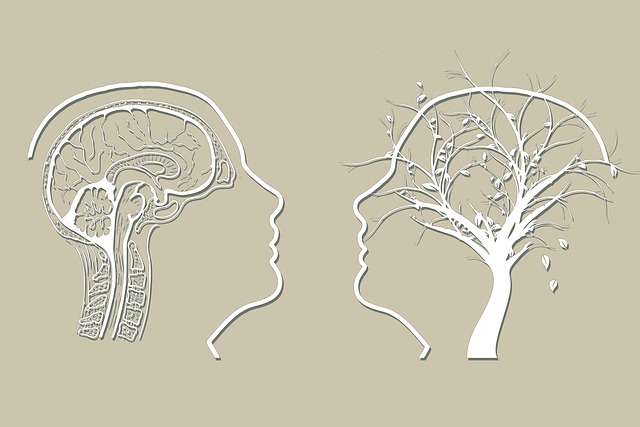Lone Tree Children Therapy tackles child stress, a hidden challenge with visible effects on behavior and health. They offer workshops that teach self-awareness, mindfulness, and coping strategies through interactive exercises and open communication. The therapy center creates safe spaces, provides crisis intervention guidance, and follows up to ensure workshop benefits endure. Their Community Outreach and Public Awareness Campaigns extend support beyond the workshop setting, promoting long-term well-being for children.
Lone Tree Children Therapy presents an innovative approach to stress management through interactive workshops designed for young minds. This comprehensive guide explores effective strategies to empower children and their caregivers. From recognizing stress signs and triggers, to engaging workshop activities and creating safe environments, we provide practical tools. Learn how to facilitate meaningful discussions and offer ongoing support post-workshop, ensuring a lasting impact on children’s mental well-being.
- Understanding Stress in Children: Identifying Signs and Triggers
- Designing Effective Workshop Content: Interactive Activities and Techniques
- Creating a Safe Space: Establishing Ground Rules and Facilitation Strategies
- Post-Workshop Follow-Up: Measuring Impact and Offering Ongoing Support
Understanding Stress in Children: Identifying Signs and Triggers

Stress in children is a prevalent issue that often goes unnoticed until it becomes a more significant problem. Understanding and identifying stress in young individuals is crucial for providing timely support, especially from organizations like Lone Tree Children Therapy. Signs of stress in children can manifest in various ways, including changes in behavior, emotional ups and downs, difficulty concentrating, and even physical symptoms such as headaches or stomachaches. These may be indicators that a child is struggling to cope with demands at school, social interactions, or significant life changes.
Identifying triggers is essential for helping children develop healthy coping mechanisms. Common stressors for kids include academic pressures, peer relationships, family dynamics, and major life events like moving or losing a loved one. By recognizing these triggers, parents, caregivers, and therapy organizations can work together to foster self-care routines development for better mental health. This may involve teaching children mindfulness techniques, encouraging open communication about their feelings, and providing trauma support services if needed.
Designing Effective Workshop Content: Interactive Activities and Techniques

Designing effective workshop content involves creating a balance between theoretical knowledge and practical, interactive activities. At Lone Tree Children Therapy, we specialize in tailoring stress management workshops that engage participants through dynamic exercises aimed at fostering self-awareness. These self-awareness exercises are crucial for helping individuals identify and manage their stress triggers effectively. By incorporating techniques like mindfulness meditation, positive affirmations, and emotional check-ins, our workshops equip attendees with practical tools to navigate stressful situations.
In addition to self-awareness exercises, we include crisis intervention guidance as a critical component of our programming. This ensures that participants not only understand the root causes of stress but also have immediate strategies to respond during moments of heightened anxiety or distress. Through role-playing scenarios and group discussions, attendees gain confidence in their ability to de-escalate situations, making them better equipped to handle challenges both personally and professionally.
Creating a Safe Space: Establishing Ground Rules and Facilitation Strategies

Creating a safe and supportive environment is paramount for effective stress management workshops. This begins with establishing clear ground rules that foster open communication, respect, and confidentiality. At Lone Tree Children Therapy, we prioritize a non-judgmental atmosphere where participants feel comfortable sharing their experiences and learning from one another. Facilitators play a crucial role in setting these boundaries, ensuring everyone’s voices are heard and emotions are validated.
Strategic facilitation techniques, such as active listening, reflective statements, and guided mindfulness exercises, help to navigate discussions and keep the energy positive. These strategies not only create a safe space but also encourage participants to develop essential coping skills, empowering them to manage stress in their daily lives. Through our Community Outreach Program Implementation and Public Awareness Campaigns Development, we aim to expand these supportive practices beyond the workshop setting.
Post-Workshop Follow-Up: Measuring Impact and Offering Ongoing Support

After facilitating stress management workshops, it’s crucial to implement a structured post-workshop follow-up strategy to measure the impact and offer ongoing support. This process allows Lone Tree Children Therapy to gather valuable feedback from participants, assess the effectiveness of the workshop content, and identify areas for improvement. By reaching out to attendees through surveys or individual check-ins, we can gain insights into their experience and understand how the learned techniques have been applied in their daily lives.
Additionally, providing ongoing resources and support is essential for sustainable change. This could involve offering one-on-one coaching sessions, implementing a mentoring program, or creating an online community where participants can connect, share experiences, and continue learning conflict resolution techniques to boost self-esteem and confidence. Such initiatives ensure that the benefits of the workshop extend beyond the initial event, fostering a supportive environment for long-term well-being.
Stress management workshops, designed with care by professionals like those at Lone Tree Children Therapy, can significantly enhance young individuals’ well-being. By covering topics from identifying stress signs and triggers to interactive coping techniques, these sessions create a safe space for learning and growth. Establishing clear ground rules and employing effective facilitation strategies ensures a supportive environment. Post-workshop follow-up allows for measuring impact and providing ongoing support, fostering a holistic approach to stress management tailored to each child’s unique needs.














